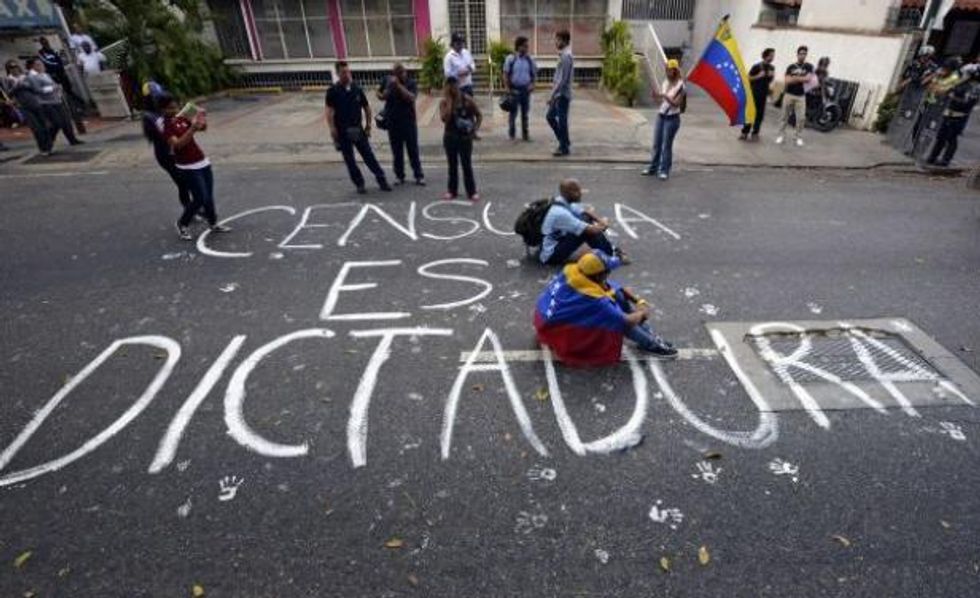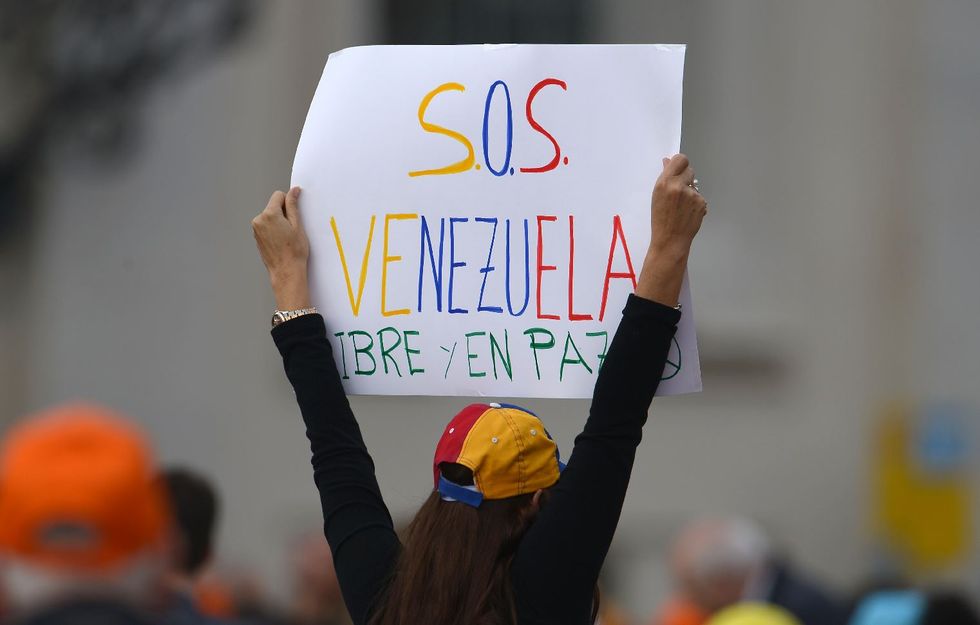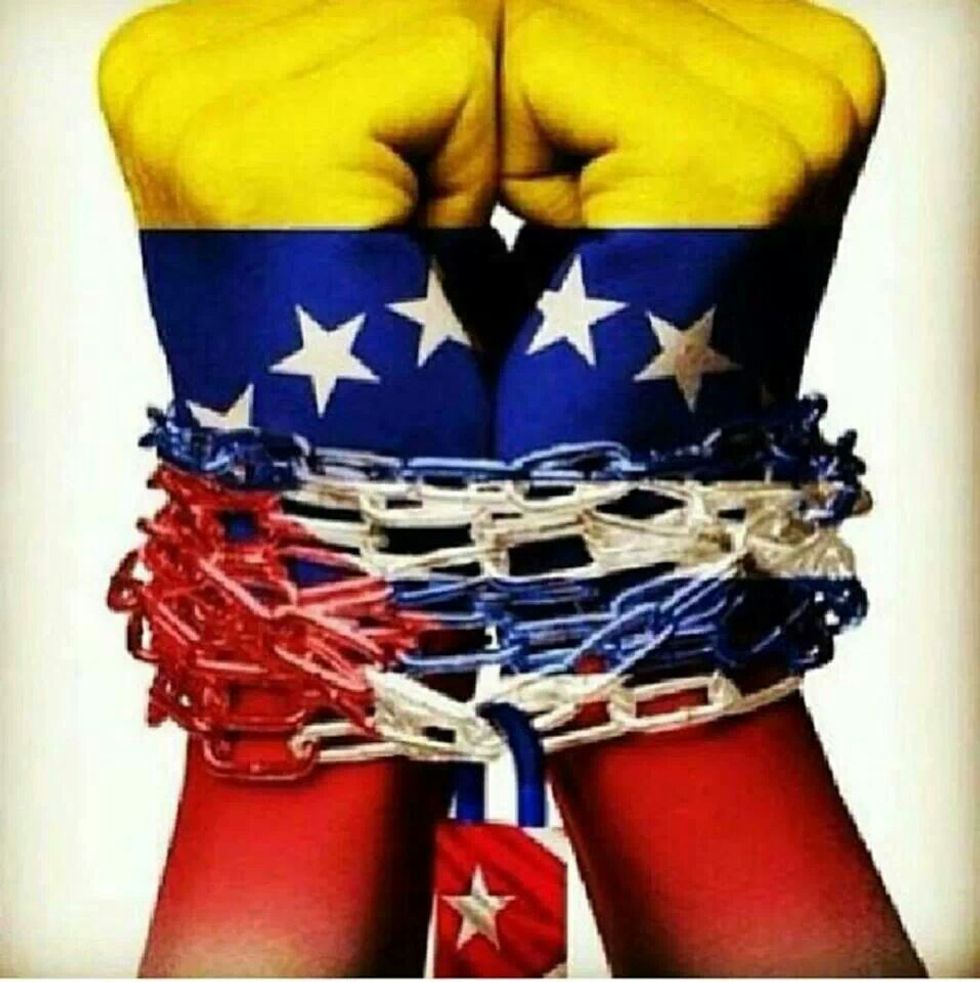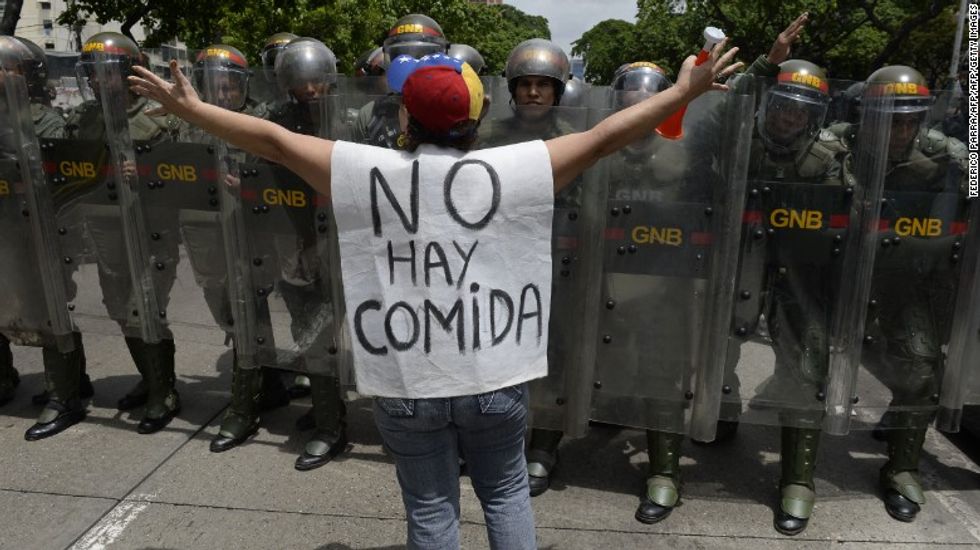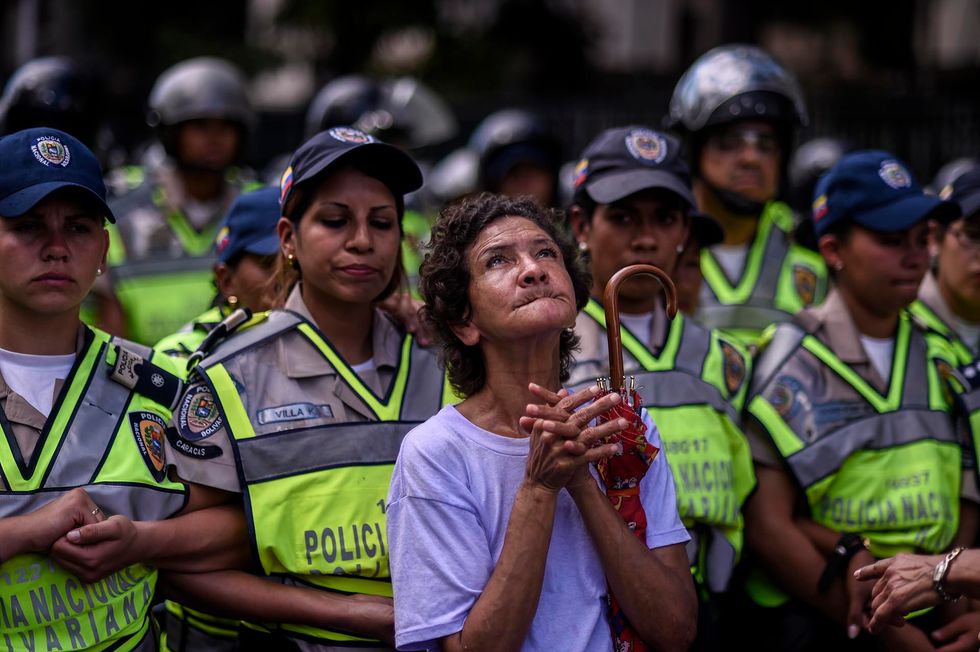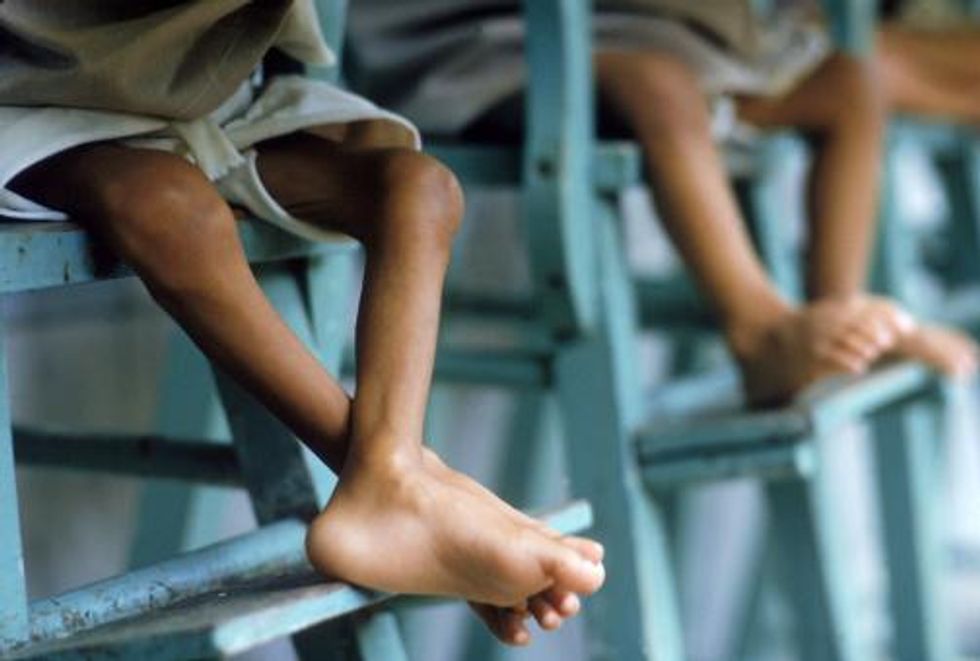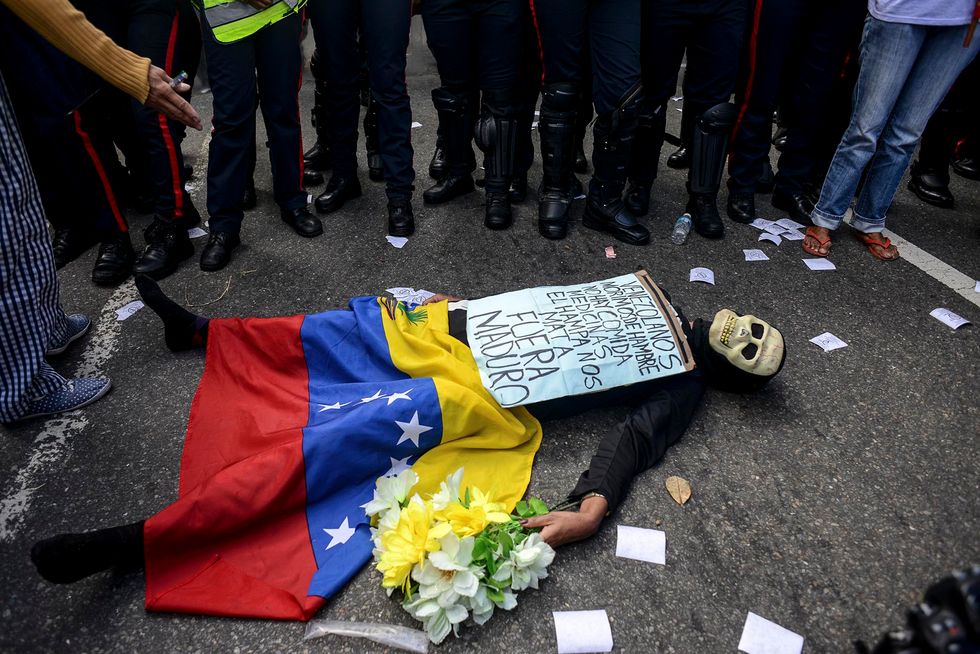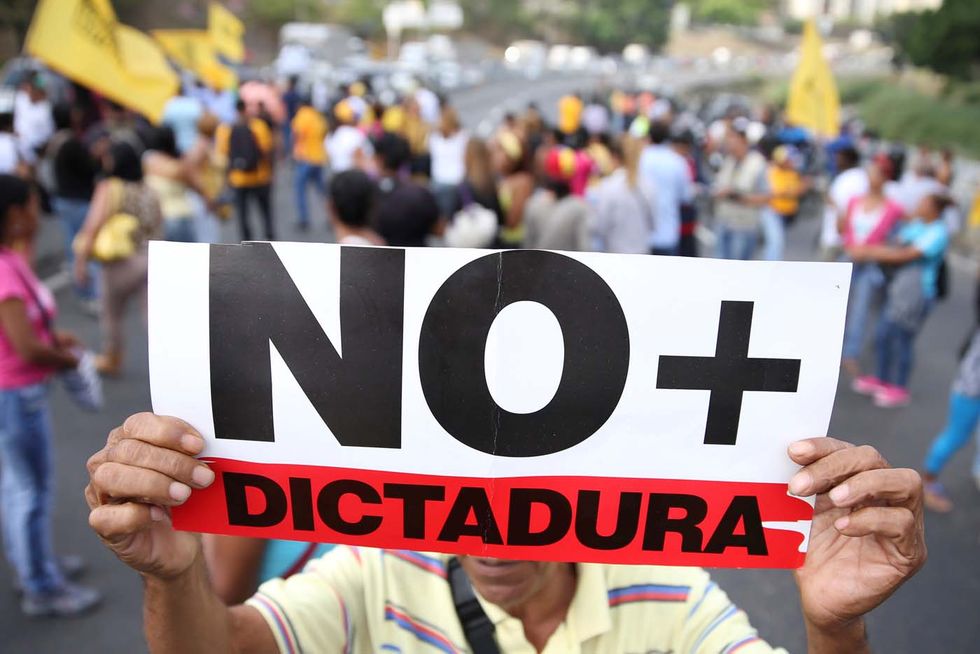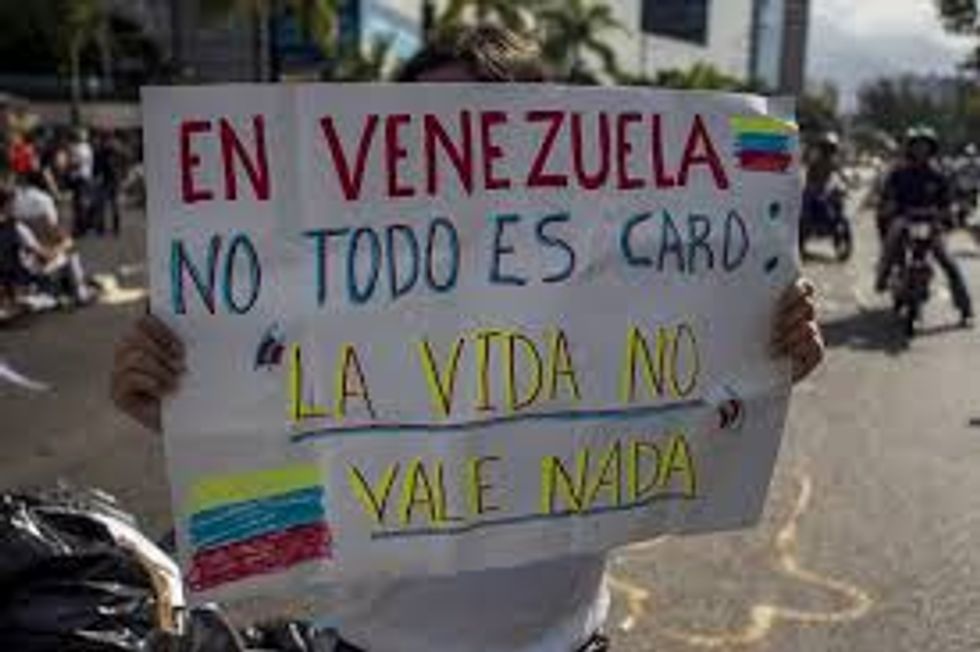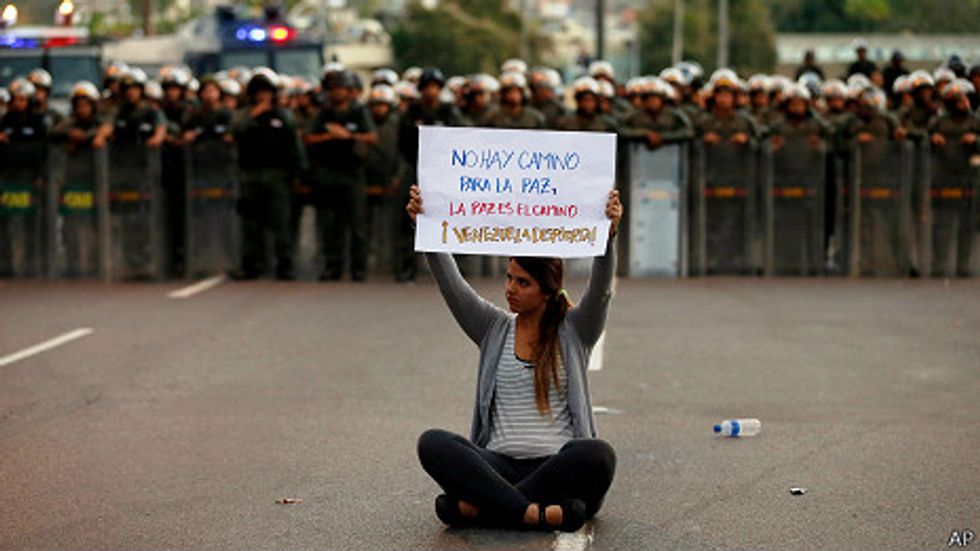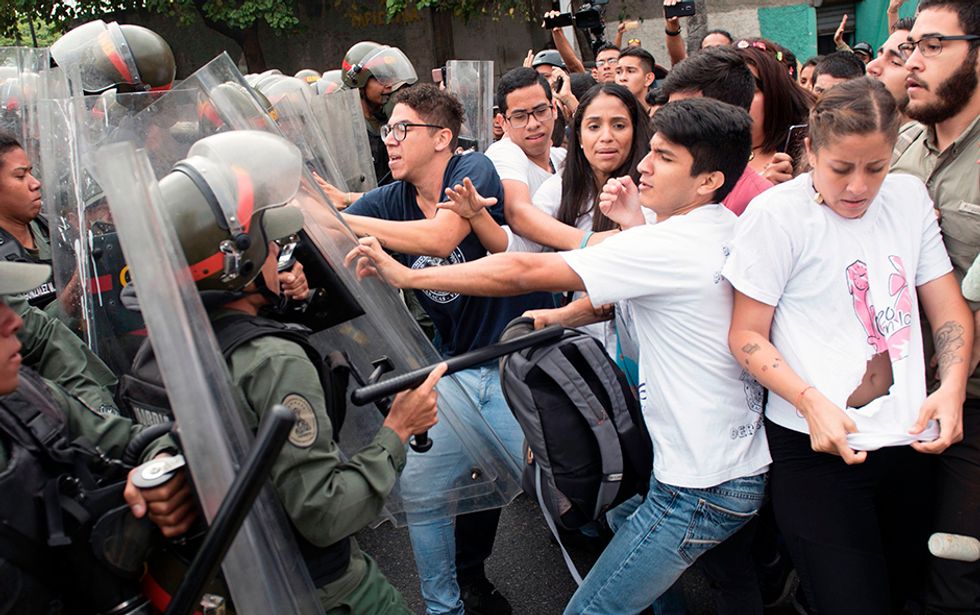My country, Venezuela, is the country with the biggest oil reserve in the world, beautiful beaches, warm weather, we were even ranked the happiest country in the world by the United Nations in 2013. When someone starts talking to me about Venezuela, I could speak for days and bring a hundred million stories and examples of what, who, why, when and how we got to the current situation. So I will try to summarize the very recent events that have led to the current massive protests.
Hunger, violence and dictatorship are three words that define Venezuela. Venezuela’s news channels are censored by the government and it has become harder and harder for people to receive unbiased news. As a Venezuelan in the United States I feel the urgency to give a voice to my country and my people, some people don’t even know where Venezuela is and they don’t have any idea of what is going on. I believe this is a very serious problem not because I am from Venezuela but because I believe it is imperative for the international community to be aware of the serious human rights violations and crisis the country is facing.
Venezuela’s socioeconomic crisis has peaked this past week.You might have heard something on TV or maybe read an article, or not heard anything at all, but here I will present 4 general key reasons to understand the recent increased crisis.
As time passes it becomes more clear that the socialist system that Chavez's and Maduro's government attempted to implement in Venezuela failed and only led the country to a crisis and clear dictatorship.
1. The Elections "limbo"
The Venezuelan opposition controls the majority of the National Assembly. Following the constitution, the opposition attempted to initiate a recall referendum (though which voters can remove an elected official from office through a direct vote before their term has ended) against president Maduro. However, the process was suspended on October 20th by the electoral power, which alleged “irregularities”. Once the electoral power discarded the referendum, the opposition asked to reschedule the presidential elections of December 2018 so they could be done before, which Maduro rejected and even said the next elections will be done on his terms. On top of that, the regional elections should have been done at the end of last year, but were postponed and a date has not been set yet.
Venezuelans are tired of the government’s inefficiency and constant violation of the constitution.
2. Economic Crisis
The fall of oil prices since 2014 punished the Venezuelan economy, which receives 96% of its divisas from exportation of hidrocarburos. The country had to drastically reduce its imports, which generated high scarcity from all types of goods, the industries are stuck due to scarcity. The IMF predicts Venezuela’s inflation (which is the highest in the world) to rise 1660% by this year. Meanwhile Maduro does not do anything to fix the problem, but only makes it worse, he blames “the imperial powers” for the economic crisis and travels to Cuba when the situation heats up in Venezuela.
Kids don’t go to school because they are hungry, people go days without eating or only eat rice. With the monthly wage they are barely able to afford a bottle of milk, if they find it. Venezuela’s problem is no longer just political, is a humanitarian crisis, and people around the world need to be aware of this.
3. Failed Dialogue
After the failed attempt to do the recall referendum, the government and opposition leaders began a political dialogue in order to solve the crisis last October, with the Vatican and Unasur as mediators. However, the Mesa de la Unidad Democrática (opposition party) backed off in December accusing chavismo of not complying with the immediate requests: setting up a date for elections and freeing the political prisoners.
Henrique Capriles, the opposition leader claims this dialogue was just a trap to calm the opposition during the time when massive protests in the streets of Venezuela occurred.
4. Violence and human rights being abused
Venezuela not only faces an economic and political crisis but also high rates of violence. In Venezuela, homicides have become part of the daily life, being killed just because you did not want to give your phone is a normal thing.
Venezuelans are tired, hungry, angry and they just want to survive and save our country. They have taken the streets to protest and they are received by the government with violence. Venezuela’s voice has been weekend by the oppressive government.
"censorship is dictatorship"
Not everything is expensive in Venezuela, life is worthless
"There is no path to peace, peace is the path"
Here are some short videos to help you understand the current events, also offering necessary background information:
Joanna Rants explains the situation with the very typical Venezuelan humor. Trust me, you will have a good laugh watching this.
HOW CAN YOU HELP?
PLEASE share and spread the voice, International awareness is KEY help.


